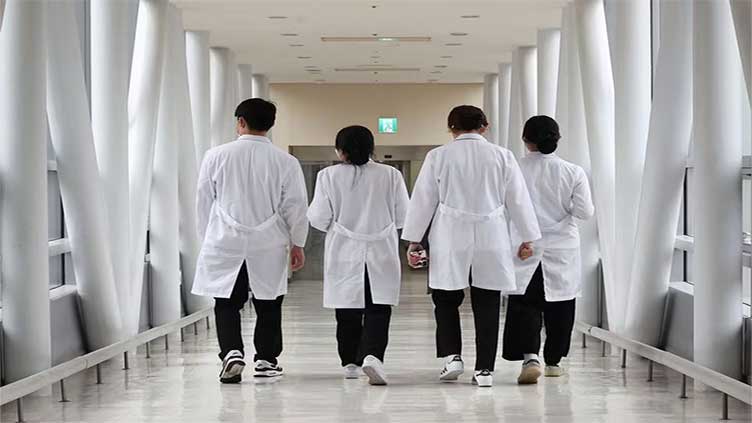South Korea trainee doctors stage walkout against medical school quotas

World
In protest, about 6,400 of the 13,000 doctors and interns handed in resignations and 1,630 left
SEOUL (Reuters) – More than 1,600 trainee doctors in South Korea's major hospitals staged a walkout on Tuesday to protest against a government plan to admit more students to medical schools, stoking fears of delays to surgical operations and patient treatment.
The government wants to boost medical school admissions by 2,000 from the 2025 academic year, against a current annual figure of about 3,000, and eventually add 10,000 more by 2035.
In protest, about 6,400 of the 13,000 doctors and interns at large hospitals handed in resignations and some 1,630 of them had left by 11 pm on Monday, the health ministry said.
Adding medical school places is key to improving access to basic healthcare in remote areas and developing cutting-edge technologies, President Yoon Suk Yeol told a cabinet meeting.
"It is a task of the times that can no longer be delayed," he added.
The industrial action came despite a government order for the doctors to stay at work, and major hospitals said they were altering surgery schedules and patient appointments.
Park Ki-joo, 65, said the walkout forced him to stay overnight in Seoul with his 9-year-old daughter, who was due for neck surgery at a major hospital.
"I don't live here but now have to get a place to stay," Park, a resident of the northern town of Cherwon, told Reuters.
"But I'm more worried it could take even longer for her to get treated."
Prime Minister Han Duck-soo, who had pleaded with doctors not to take people's lives and health hostage, ordered emergency measures such as the use of telemedicine, more operations at public hospitals and the opening up of military clinics.
About 76% of South Koreans back the plan for more medical students, a Gallup Korea poll showed last week, amid concerns about an acute shortage of doctors for paediatrics, emergency units and clinics outside the greater Seoul area.
South Korea's population of 52 million had 2.6 doctors per 1,000 people in 2022, far below the average of 3.7 for countries in the Organisation for Economic Co-operation and Development (OECD).
But doctors and medical student groups say there are already sufficient physicians and an increase in numbers could lead to unnecessary medical procedures and undermine the finances of the national health insurance plan.
They have also criticised the government for failing to consult and for "demonising" existing doctors.
Park Dan, head of the Korea Interns and Residents Association, said on Facebook he submitted his resignation on Monday because of what he called the government's "messy policy".


